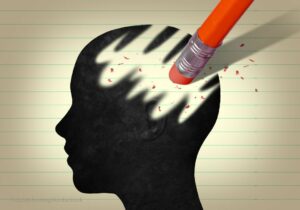If you are struggling with post-traumatic stress disorder (PTSD), finding the right therapist is essential. Not all therapists are created equal, and it is important to find someone who understands your condition and can help you manage your symptoms. This blog post will discuss how to find the right therapist for PTSD and what to look for in a good treatment provider.
Contents
- 1 Who Is A PTSD Therapist?
- 2 When To Seek Help?
- 3 What Other Conditions Do PTSD Therapists Help?
- 4 What Techniques Do PTSD Therapists Help?
- 4.1 Cognitive behavioral therapy (CBT)
- 4.2 Cognitive processing therapy (CPT)
- 4.3 Dialectical behavior therapy (DBT)
- 4.4 Acceptance and commitment therapy (ACT)
- 4.5 Present Centered Therapy (PCT)
- 4.6 Eye movement desensitization and reprocessing (EMDR)
- 4.7 Prolonged exposure therapy
- 4.8 Expressive therapy
- 4.9 Psychodynamic therapy
- 4.10 Group therapy
- 4.11 Natural treatments
- 4.12 Medication
- 5 Benefits Of Seeing A PTSD Therapist
- 6 Qualities Of A Good PTSD Therapist
- 7 Finding The Right PTSD Therapist
- 8 Conclusion
Who Is A PTSD Therapist?
PTSD Therapists are mental health professionals who have gone through specialized training to help people who are struggling with post-traumatic stress disorder. PTSD therapists can be psychiatrists, psychologists, social workers, or counselors. While many therapists may be able to provide some level of care for PTSD, it is important to find a therapist who has experience and expertise in treating this condition.
A PTSD therapist will work with you to understand your symptoms and how they are impacting your life. They will also help you develop coping mechanisms to deal with your symptoms.
It is important to note that while all therapists are required to have a license, not all therapists are created equal. Some therapists may have more experience with PTSD than others. When searching for a therapist, be sure to ask about their experience treating this condition.
When To Seek Help?

Trauma comes in many different forms. It can be a single event or co-occurring instances. It can also be repeated exposure to a traumatic experience(s). PTSD can happen to anyone regardless of age, race, or gender. Some of the most common instances that make an individual vulnerable to PTSD include:
- Natural disasters
- Witnessing a death or serious injury
- Military combat
- Infidelity
- Near-death experiences
- Sexual assault or abuse
- Childhood trauma
- Severe injuries
PTSD is a complex and serious condition that can have a profound impact on your life. It can also manifest in many different ways. Some people may experience all of the symptoms while others may only experience a few. The most common symptoms include:
- Intrusive memories of the event
- Flashbacks or nightmares
- Avoidance of people, places, and things that remind you of the trauma
- Negative changes in your thoughts and mood
- Feeling detached from others
- Loss of interest in activities you once enjoyed
- Difficulty concentrating
- Constant feelings of guilt or shame
- Rumination or overthinking
- Hypervigilance or restlessness
- Difficulty experiencing positive emotions
- Changes in your physical health
- Poor emotional regulation
These are the most commonly occurring signs of the aftermath of experiencing a traumatic event. However, if these signs persist over time and are interfering with your day-to-day functioning, it is imperative that you reach out for professional help.
What Other Conditions Do PTSD Therapists Help?

Oftentimes, PTSD occurs as a result of another condition. For example, you may develop PTSD after experiencing a car accident or surviving a mass shooting. However, there are other conditions that can increase your risk of developing PTSD. These include:
- Depression
- Anxiety
- Substance abuse
- Addiction
- Acute stress disorder
- Insomnia
- Chronic fatigue syndrome
- Obsessive-compulsive disorder (OCD)
- Eating disorders
- Chronic illnesses
- Previous trauma
If you have any of these conditions, it is important to seek help from a therapist who specializes in treating co-occurring disorders. This type of therapist will be able to provide you with the best possible care and help you manage all of your symptoms.
What Techniques Do PTSD Therapists Help?
PTSD therapists use a variety of techniques to help people who are struggling with this condition. Each technique follows a specific protocol and is designed to help people in different ways. Some of the most common techniques used by PTSD therapists include:
Cognitive behavioral therapy (CBT)
CBT is one of the most versatile and commonly used therapies for treating PTSD. This type of therapy helps people identify and challenge the negative thoughts and beliefs that are keeping them stuck in their trauma. CBT also teaches people new skills and coping mechanisms to deal with their symptoms. This type of therapy has been shown to be particularly effective in treating PTSD.
CBT approach has been proven to be effective in treating PTSD. It encompasses a variety of techniques to help the clients identify, challenge and change their negative thoughts and beliefs. These techniques also teach new skills and coping mechanisms to help people deal with their symptoms. Some examples include:
- Cognitive restructuring: This technique helps people identify the negative thoughts and beliefs that are keeping them stuck in their trauma. Once these thoughts and beliefs are identified, the therapist can help the person challenge and reframe them.
- Behavioral experiments: In this type of therapy, people test out new ways of thinking and behaving to see if they help reduce their distress. For example, someone might experiment with different ways of interacting with their spouse or boss to see if it helps them feel more in control.
- Journaling: This is a simple but effective way to process trauma. In therapy, people can journal their thoughts and feelings surrounding their trauma. This can help them understand and work through their emotions.
- Relaxation techniques: These techniques can help people manage their anxiety and stress. Some examples include deep breathing, meditation, and mindfulness.
- Role-playing: This is a great way to practice new skills and coping mechanisms. In therapy, people can role-play different situations that trigger their PTSD. This can help them feel more prepared and less anxious in real-life situations.
All of these contribute to helping people with PTSD.
Cognitive processing therapy (CPT)
CPT, which is also sometimes called “cognitive restructuring,” is a type of therapy that can be very helpful for people with PTSD. In CPT, the therapist helps the person with PTSD to understand and change the way they think about their trauma.
The mechanisms of this approach work by helping the person to identify and challenge their negative thoughts about the trauma, and to replace them with more balanced and realistic perspectives.
For example, a person with PTSD might have the thought, “I am such a weak and pathetic person.”
The therapist would help the person to see that this is not an accurate or helpful way of thinking about themselves, and to come up with a more realistic and balanced perspective. This provides for a more positive outlook, which in turn can help to reduce symptoms of PTSD.
CPT has been shown to be an effective treatment for PTSD in many studies, and it is recommended as a first-line treatment for PTSD.
Dialectical behavior therapy (DBT)
DBT, a popular acronym for dialectical behavior therapy, is a cognitive-behavioral treatment that was originally developed to treat borderline personality disorder. DBT has been found to be an effective treatment for PTSD. The focus of DBT is on helping the individual learn skills to cope with difficult situations and emotions.
The focus of DBT is on helping the individual learn skills to cope with difficult situations and emotions. It identifies and works to change negative thinking patterns and behaviors. DBT has four main objectives:
- reduce suicide attempts and self-harming behaviors
- improve the quality of life
- decrease PTSD symptoms
- teach skills that can be used in everyday life
Your therapist will use a variety of techniques to help you achieve these objectives. Some of the skills that you will learn in DBT include:
- mindfulness
- distress tolerance
- emotion regulation
- interpersonal effectiveness
DBT has been found to be an effective treatment for PTSD.
Acceptance and commitment therapy (ACT)

As the name suggests, ACT, an acronym for acceptance and commitment therapy, is a type of therapy that helps people to accept their thoughts and feelings without judgment, and to commit to taking action in the present moment. This type of therapy has been found to be particularly effective for treating PTSD.
One of the things that makes ACT so effective for treating PTSD is that it helps people to understand that their thoughts and feelings are not necessarily reality. This can be a difficult concept for people to grasp, but it is an important one. Thoughts and feelings are simply thoughts and feelings; they are not necessarily accurate reflections of reality.
ACT also helps people to understand the importance of taking action in the present moment. This is particularly important for people with PTSD, as many of them struggle with feeling stuck in the past. Taking action in the present moment can help to break that cycle and move forward.
Present Centered Therapy (PCT)
PCT, like the name suggests, is an approach to therapy that is focused on the present. This type of therapy can be helpful for individuals who are struggling with PTSD because it allows them to focus on the here and now, rather than dwell on past trauma. PCT can also help individuals learn how to cope with triggers and manage their symptoms in a more effective way.
PCT focuses on the here and now, rather than on past events. The therapist helps the client to identify and change negative thinking patterns and behaviors that are keeping them stuck in the past. It also teaches skills for managing symptoms, such as relaxation techniques and how to cope with triggers.
Eye movement desensitization and reprocessing (EMDR)
EMDR is a rather new type of therapy that has been shown to be very effective in treating PTSD.
It is a form of exposure therapy, which means that it helps you to gradually confront and process the memories and feelings that are causing you distress.
EMDR is done by having the patient move their eyes back and forth while focusing on a specific memory or feeling. This eye movement is thought to help the brain process the trauma more effectively.
EMDR has been shown to be particularly effective in treating PTSD because it can help to address both the emotional and physiological components of the disorder. It also contributes to a feeling of empowerment and control, which are both important in the healing process.
Prolonged exposure therapy
This is perhaps the most well-known type of therapy for PTSD. It involves gradually exposing the patient to the memories and feelings that are causing them distress.
This is done in a safe and controlled environment, with the aim of helping the patient to process these memories and feelings more effectively.
For example, a therapist may start by having the patient recount the trauma in detail, in a session that lasts for about 90 minutes. The aim is to help the patient to gradually become more comfortable with talking about the trauma, and to eventually be able to think about it without feeling distress. This can also happen by gradually exposing the patient to situations that trigger memories of the trauma, such as watching a news report about a similar event.
Prolonged exposure therapy has been shown to be an effective treatment for PTSD, and it is often used in combination with other therapies. This approach to therapy can be a very effective treatment for PTSD, but it is also one of the most difficult. It requires a great deal of courage and commitment from the patient, as well as a strong therapeutic relationship.
Expressive therapy
Expressive therapy is a new yet promising type of therapy that uses different creative outlets to help people process and express their emotions. This can include things such as art, music, and writing.
Expressive therapy is a new type of therapy that is showing promise in the treatment of PTSD. It uses different creative outlets to help people process and express their emotions. This can be helpful for people with PTSD because it allows them to express themselves in a safe and controlled environment. It also helps to build a sense of connection and trust between the therapist and the patient. It uses a variety of medium such as art, music, and writing to help people express their emotions. This is beneficial in multiple ways as it can help people to communicate what they are feeling, and also provide a way to work through those emotions.
Psychodynamic therapy
Psychodynamic therapy, also called insight-oriented therapy, focuses on unconscious processes as they are manifested in a person’s present behavior. The goals of psychodynamic therapy are a client’s self-awareness and understanding of the influence of the past on present behavior.
Psychodynamic therapists help clients explore significant life events that may have contributed to their current issues and symptoms. In addition, this type of therapist strives to increase a patient’s awareness of how early childhood experiences and relationships with parents or other important figures may be affecting current behaviors and thoughts.
Psychodynamic therapy usually happens through weekly 50-minute sessions over the course of several months (or even years). It is most effective when patients are motivated to engage in self-exploration and change.
Moreover, this type of therapy is not for everyone. People who are seeking immediate relief from symptoms or who prefer a more active, directive approach may do better with another treatment modality.
Group therapy
Group therapy is an excellent way to begin your journey because it will allow you to see that you are not alone and that others are struggling with the same issues. It can also be a great way to learn new coping mechanisms and get support from others who understand what you are going through. It enhances the level of coping for individuals by providing a supportive environment and allows people to share their experiences.
Group therapy has additional benefits in comparison to individual therapy as it can provide a sense of social support, normalization of experiences, and an opportunity to practice new skills.
Natural treatments
In addition to psychological intervention, there are a number of natural treatments that can be effective for PTSD. These include:
- Meditation: Meditation can help to focus and calm the mind, reducing the number of intrusive thoughts experienced by individuals with PTSD. It works by training the brain to focus on the present moment, rather than dwelling on past trauma.
- Yoga: Yoga can help to reduce stress and improve sleep quality, both of which are often disturbed in individuals with PTSD. It also promotes relaxation and mindfulness, which can help to reduce the intensity of PTSD symptoms.
- Herbal remedies: Herbal remedies such as lavender, chamomile, and passionflower have been shown to be effective in reducing anxiety and promoting relaxation. They work by interacting with the nervous system to promote calmness and reduce stress.
- Mindfulness: Mindfulness is a form of meditation that involves paying attention to the present moment without judgment. It can help to reduce stress, anxiety, and intrusive thoughts, as well as improve sleep quality.
- Aromatherapy: Aromatherapy is the use of essential oils to promote relaxation and well-being. It can be used in conjunction with other treatments such as massage or yoga. It works by stimulating the sense of smell, which then has a direct effect on the limbic system, the part of the brain that controls emotions.
- Acupuncture: Acupuncture is a form of traditional Chinese medicine that involves the placement of thin needles into the skin. It is thought to work by stimulating the body and mind, promoting relaxation, and reducing stress.
- Lifestyle changes: Lastly, lifestyle changes such as regular exercise, adequate sleep, and a healthy diet can also help to reduce stress and improve overall well-being. These changes can help to reduce the intensity of PTSD symptoms and improve quality of life. This includes things such as:
-Regular exercise
-Adequate sleep
-Healthy diet
-Reduced intake of alcohol and drugs
-Avoidance of triggers (e.g., places, people, activities) that remind you of the trauma
All of these have been shown to be effective in the treatment of PTSD. If you are considering seeking treatment for PTSD, it is important to consult with a mental health professional to map out your best options.
Medication
Lastly, if your symptoms are too severe and/or you are having difficulty functioning in your daily life, medication may be necessary. Medication can help to reduce the symptoms of PTSD and make it easier to cope with the disorder. Some of the most common types of prescription medications for PTSD include:

- Selective serotonin reuptake inhibitors (SSRIs)
- Serotonin and norepinephrine reuptake inhibitors (SNRIs)
- Tricyclic antidepressants (TCAs)
- Monoamine oxidase inhibitors (MAOIs)
- Antipsychotics
- Sleep medications
These medications can be effective in reducing the symptoms of PTSD. However, they can also cause a number of side effects, so it is important to consult with your doctor before starting any type of medication.
These are all the available treatments for PTSD. It is important to note that there is no one-size-fits-all approach to treatment, and what works for one person may not work for another. It is important to consult with a mental health professional to determine the best course of action for you.
Benefits Of Seeing A PTSD Therapist
If you are struggling with PTSD and its symptoms, consulting the right professional can provide a number of benefits. These can include:
- Relief from symptoms
- Improved coping skills
- Acceptance of the trauma
- Resilience and hope
- Ability to face the trauma
- Peace of mind
- Better sleep quality
- Reduced anxiety and stress levels
- Increased sense of control
- Trigger identification and management
- An increase in quality of life
- Improved relationships
- Greater productivity
- Better insight into the disorder
- Higher levels of mental and physical well-being
All of these benefits can help to improve your quality of life. If you are considering seeking treatment for PTSD, it is important to consult with a mental health professional to map out your best options. With the right treatment, you can live a happy and fulfilling life despite your PTSD diagnosis.
Qualities Of A Good PTSD Therapist
Therapy is a profession that requires both skill and training. When choosing a therapist, it is important to find someone who has the necessary qualifications to treat your specific condition. Some of the qualities that you should look for in a PTSD therapist include:

- Patience: A good therapist will be patient with you and your condition. They will understand that it takes time to heal from PTSD and will not push you to do more than you are comfortable with.
- Empathy: A good therapist will be able to empathize with what you are going through. They will be able to understand your feelings and experiences and will be able to provide you with the support that you need.
- Compassion: A good therapist will be compassionate towards you and your condition. They will understand the challenges that you face and will be there to support you through your journey to recovery.
- A nonjudgmental attitude: A good therapist will have a non-judgmental attitude towards you and your condition. They will not judge you for your experiences or for the way that you are coping with them.
- A good listener: A good therapist will be a good listener. They will listen to what you have to say and will be able to offer you the guidance and support that you need. This also means that they pick up on the non-verbal cues and body language.
- Effective communication skills: In addition to listening, the way they talk is also important. They should be able to communicate effectively with you and should be able to understand your needs.
- Ability to create a safe and trusting environment: Lastly, a good therapist will be able to create a safe and trusting environment for you. This is important because it will allow you to feel comfortable sharing your experiences and thoughts with them.
If you are looking for a PTSD therapist, it is important to keep these qualities in mind. With the right therapist, you can begin your journey to recovery and start living the life that you deserve.
Finding The Right PTSD Therapist
Now that we know who PTSD therapists are and what they do, we will now learn how to find the right one for us. Here are a few tips:
- Get referrals from friends or family members: One of the best ways to find a therapist is to get referrals from people who have already seen one. If you know someone who has been through therapy, they may be able to recommend a good therapist to you.
- Do your research: Once you have a few names of potential therapists, it is important to do your research. You can read reviews online or look up their credentials to see if they are qualified to treat your condition.
- Look for someone who specializes in PTSD: Not all therapists are created equal. It is important to find someone who specializes in PTSD so that they can provide you with the best possible care. They must also have experience and training in treating PTSD.
- Make sure you are comfortable with them: When you are meeting with a potential therapist, it is important to make sure that you are comfortable with them. This means that you feel safe and are also trusting of them. If you don’t feel comfortable, then they may not be the right therapist for you.
- Figure out your costs: Once you have found a few potential therapists, it is important to figure out your costs. Therapy can be expensive, so you want to make sure that you are able to afford the care that you need.
If you follow these tips, you will be well on your way to finding the right PTSD therapist for you. Take the first step today and reach out to a therapist in your area. With their help, you can begin to heal the wounds of your past and start living a happy and fulfilling life. PTSD does not have to control your life. You can take back the power and start living on your own terms.
Questions You Should Ask
Choosing a therapist is a very personal decision. It is important that you find someone who you feel comfortable with and who you feel understands your needs. When you are looking for a PTSD therapist, there are some questions that you can ask to make sure they are the right fit for you.

- What is your experience with treating PTSD?
- How do you think PTSD should be treated?
- Do you have a specific treatment approach that you use for PTSD?
- Do you have any personal experience with PTSD?
- What are your thoughts on medication for PTSD?
- How do you think lifestyle changes can help reduce the symptoms of PTSD?
- What are your views on triggers?
- What are your thoughts on complementary and alternative treatments for PTSD?
- Do you have any experience with treating (insert your specific trauma here)?
- How do you think therapy will help me?
- What are your policies around confidentiality?
- What are your availability and fees?
These are just some of the questions that you may want to ask a potential therapist. It is important that you find someone who you feel comfortable with and who you feel is knowledgeable and also understanding. Asking these questions can help you to get a better sense of whether or not a therapist is right for you. If you have any hesitations about a potential therapist, it is important to trust your gut and keep looking.
PTSD therapists aim and work to help individuals who are struggling with post-traumatic stress disorder. There are many different types of therapists, so it is important to find one that specializes in treating PTSD and has the experience and credentials to do so. It is also important to make sure that you feel comfortable with your therapist and that you feel they understand your needs. Once you have found a qualified therapist, you can begin working together to heal the wounds of your past and start living a happy and fulfilling life.
Conclusion
In conclusion of the above, we can say that seeking a therapist for PTSD can be very helpful in your healing process. It is important to find someone who you feel comfortable with and who specializes in treating PTSD. If you are struggling with post-traumatic stress disorder, know that you are not alone. There is help available to you. A qualified PTSD therapist can provide you with the support and care that you need to heal from your trauma.
For more information, please contact MantraCare. Online therapists are increasingly important in today’s world because they provide a convenient and accessible way for people to receive mental health support and treatment. Visit MantraCare If you are searching for “therapist near me”. Book a trial Online therapy session


